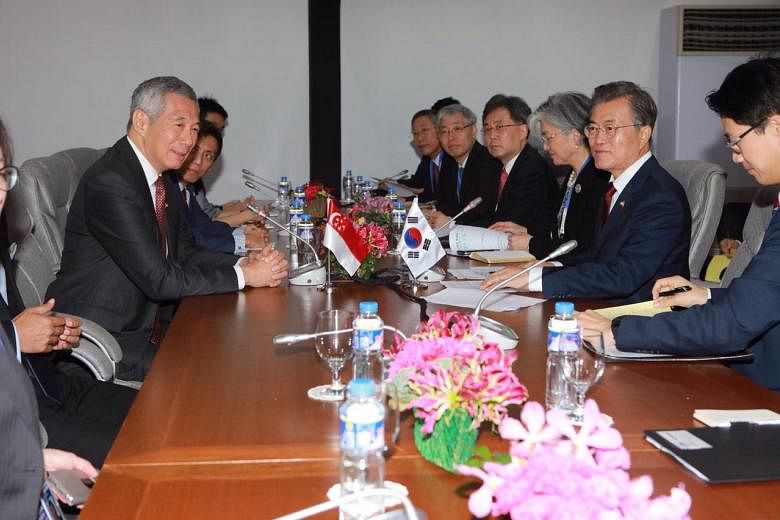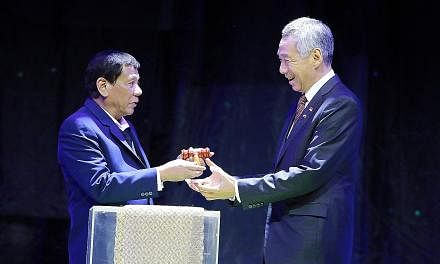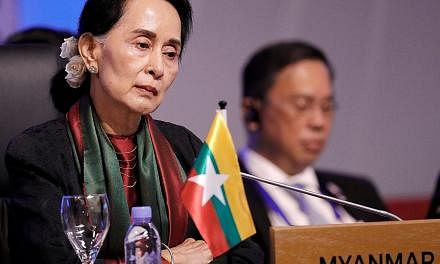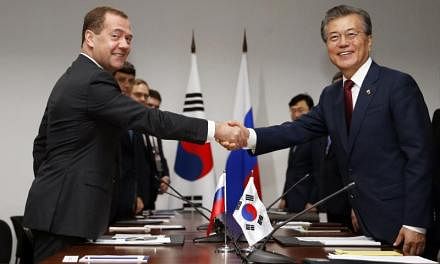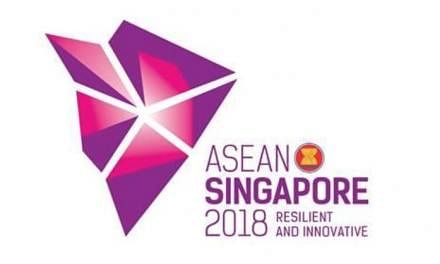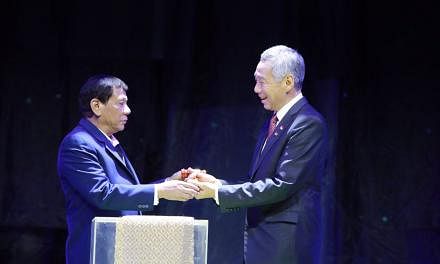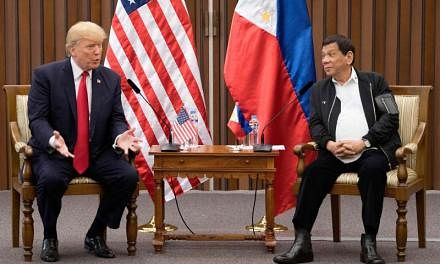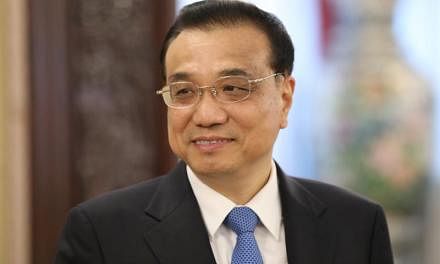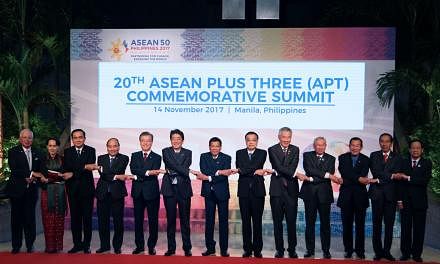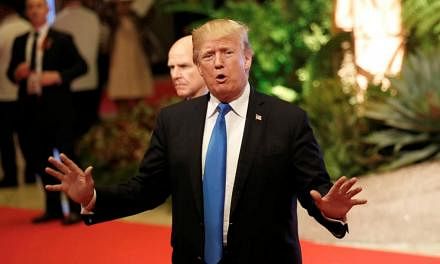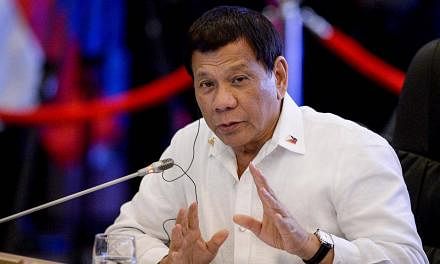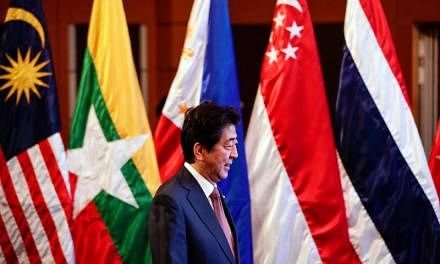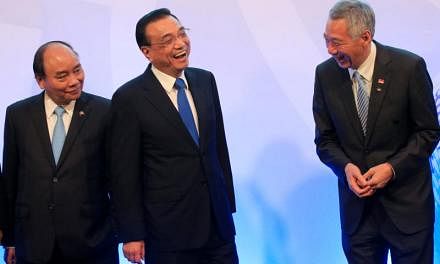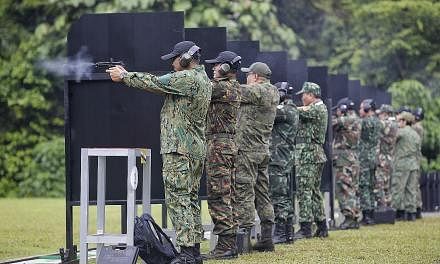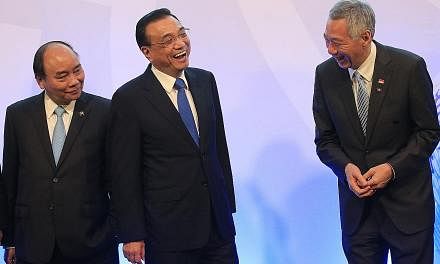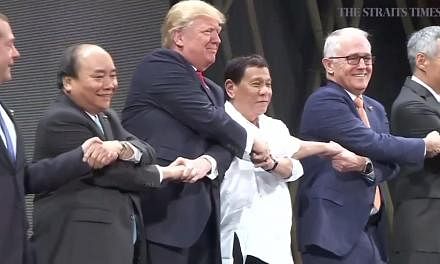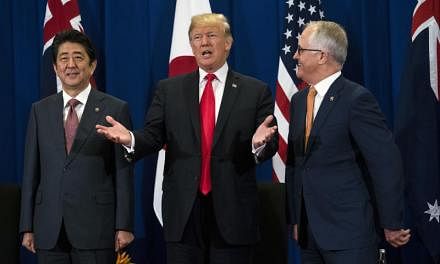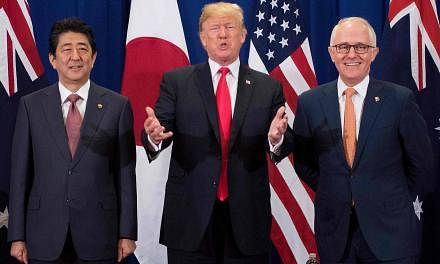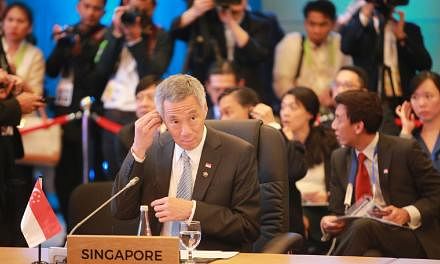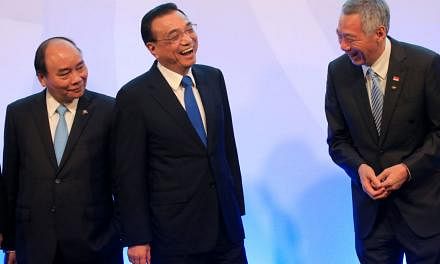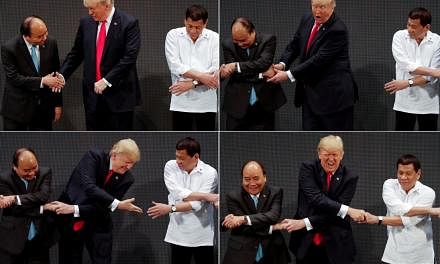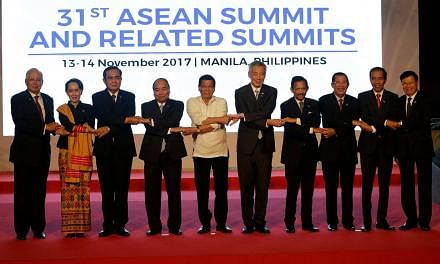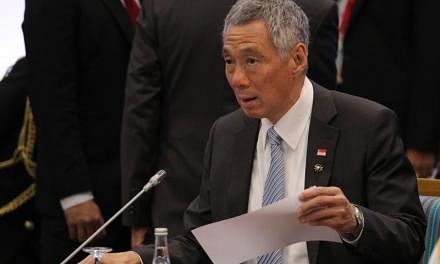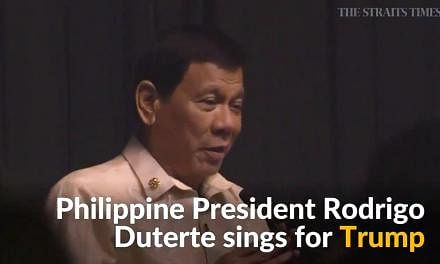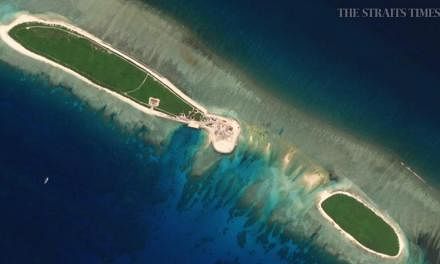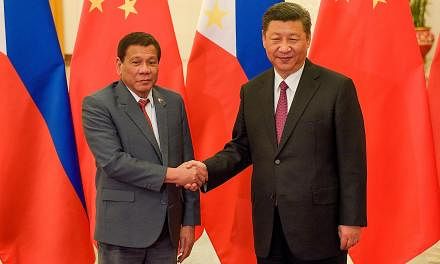MANILA - Amid the rise of protectionism around the world, leaders of South-east Asia's nations and their three key partners in East Asian urged one another to stay the course and press on with economic and regional integration.
They were speaking at the 20th Asean Plus Three Commemorative Summit, a forum comprising the 10 Asean nations and China, Japan and South Korea.
Each leader had a variation on a vision of an East Asian Community, or a East Asian Economic Community, but all had a common theme of working together.
Chinese Premier Li Keqiang said in opening remarks: "I hope we through this summit we can build a consensus and send a positive signal that regional integration and advancing the East Asia economic community serves to benefit the people and the countries in the region."
South Korean President Moon Jae In too called for a regional community, saying: "Let us create a vision for the East Asian Community of peace, prosperity and progress that has overcome the complex challenges including protectionist and self-centered approaches to globalisation, ageing and climate change."
Japanese Prime Minister Shinzo Abe called for financial cooperation to strengthen the region's economies, saying: "In the midst of concerns about the rise of protectionism and inward-looking orientation in the world, in order to enhance predictability of the economies of the region, to mitigate vulnerabilities, and to maintain and strengthen the free trade system, the significance of financial cooperation between the Asean Plus Three becomes increasingly greater."
Prime Minister Lee Hsien Loong, addressing fellow leaders at the session, echoed the call for greater financial and economic integration.
He said that as Asean's chairman in 2018, Singapore will do its best to further deepen the grouping's growing ties with all three countries and work towards achieving its long term goal of building an East Asian Community.
He pointed to the potential synergy between Asean's master plan to improve connectivity in its member states, and the East Asian countries' own programmes like China's Belt and Road initiative, Japan's Expanded Partnership for Quality Infrastructure and South Korea's Asean Connectivity Forum.
"I'm glad to see that our region is pressing on with economic integration despite sentiments against globalisation," he said.
He also said it was important to step up efforts to conclude a high-quality and comprehensive Regional Comprehensive Economic Partnership (RCEP) - a 16-nation free trade deal all Asean Plus Three members as well as India, Australia and New Zealand are negotiating.
"This will bring tangible benefits to our businesses and citizens, and show the world that East Asia is confident of our economic future," PM Lee said.
Working together on cruise tourism, digital economy
In his remarks, PM Lee also said cruise tourism is one sector that had the potential to grow.
Tourist flows across East Asia have risen rapidly, he said.
Together, citizens of China, Japan and South Korea made up more than a quarter of tourists who arrived in Asean in 2015, up from just over a fifth a year earlier.
Digital innovations are another area in which countries can work together to take advantage of new technologies, PM Lee added.
China, Japan and South Korea are already world leaders in e-commerce and smart cities, and Asean's digital economy is projected to grow five times to around US$200 billion by 2025.
As Asean chair in 2018, Singapore hopes to build up e-commerce frameworks, cyber capabilities, and create an Asean network of smart cities, said PM Lee.
Regional security key to prosperity
But for all this to happen, South-east Asia and East Asia must continue to work together to maintain regional peace and stability, said PM Lee.
"Regional security is the cornerstone of our growth and development," he said, adding that North Korea's recent provocations pose a severe threat to regional peace, security and stability.
"Any miscalculation can have devastating consequences," he said.
A combination of pressure and dialogue among all stakeholders is needed for progress on this delicate situation, he added.

